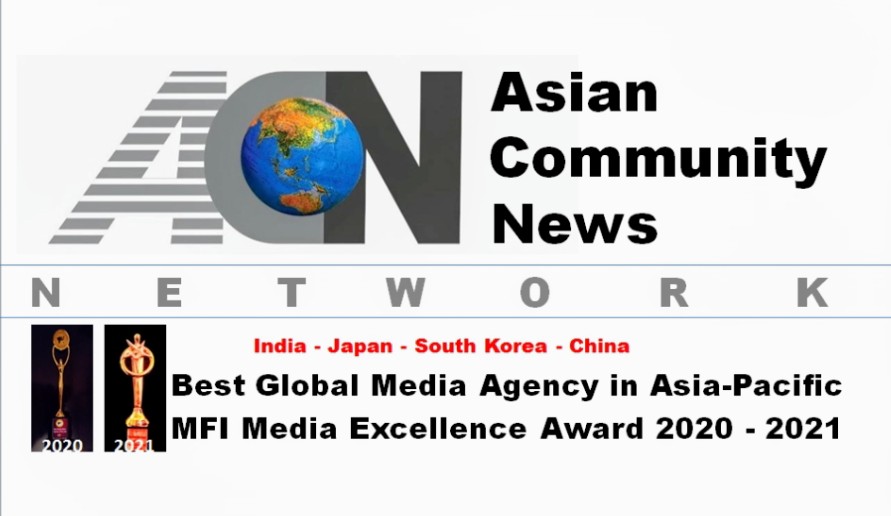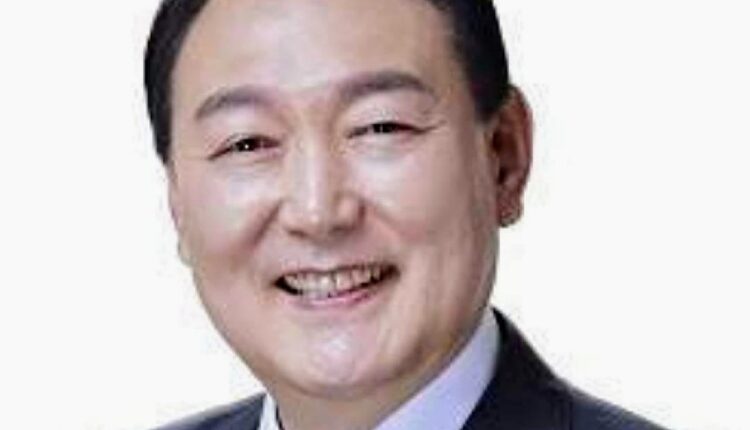Newly elected South Korean President and New Southern Policy: Will they co-exist and grow in India’s favour? Wonders a bloc in South Korea
The incumbent President Moon Jae-in strongly batted for New Southern Policy with a clear tilt towards ASEAN and India, besides pushing for reunification with North Korea. But will the new President Yoon Suk-yeol go the same way?
An anonymous author from South Korea
SEOUL: Recently the conservative People Power Party candidate was elected with the smallest margin of votes (0.7%) in the history of South Korea, replacing the incumbent President Moon Jae-in of the ruling Democratic Party. I take it for granted that accepting the election results is the basic principle of modern representative democracy decision making, but it’s seriously concerned about Korea’s next five years.
South Korea’s New Southern Policy was led by the current Moon Jae-in government. (He was a candidate for the current ruling party, the Democratic Party, about five years ago.) This is the policy officially announced by President Moon Jae-in in his keynote speech at the ‘Korea-Indonesia Business Forum’ held in Indonesia on November 9, 2017. The New Southern Policy strengthens relations with the new southern countries such as ASEAN and India at a level similar to that of the four neighboring powers (USA, China, Japan, Russia) in a wide range of fields such as politics, economy, society and culture, going beyond the Korean Peninsula to East Asia, This is the core foreign policy of the Moon Jae-in government to realize common prosperity and peace around the world.
The current government has also made several attempts to resume dialogue with North Korea to ease tensions and create an atmosphere of peace on the Korean Peninsula. This is because maintaining peace on the Korean Peninsula is the basic condition for coexistence of the world as well as Korea. (Samuel Huntington pointed out the Korean Peninsula as one of the starting points of a global military crisis in his book ‘The Clash of Civilizations (1997)’.) Since Korea was divided by foreign powers, it should be absorbed and reunified through economic exchanges, not militarily, as was done in Germany’s case.
However, the elected presidential candidate criticized all the policies of the current government during the election campaign, despite serving as a high-ranking official (prosecutor-general) of the Moon Jae-in government. He criticizes almost all foreign policies of the current government, although he mentions expanding markets with ASEAN countries.
Moreover, he made a number of irresponsible remarks that heightened tensions on the Korean Peninsula, such as mentioning a preemptive strike against North Korea and introducing US nuclear weapons to South Korea. Even the US State Department has criticized his remarks as absurd.
In an increasingly blocky global economy, Korea’s diplomacy is of paramount importance. The difficult tightrope between the two blocs represented by China and the United States is the most important for South Korea, where trade and exports are its core economic engine, along with its relationship with North Korea. However, for the past decade, when the current opposition party was the ruling party, foreign policy biased only to the US and Japan did not help to improve the reality (the Japanese government is in fact fearing and opposing a unified Korea). The ‘foreign resource diplomacy’ policy promoted by the People’s Power Party when it came to power was a hotbed of corruption and tax waste. On the other hand, it has always been the Democratic Party’s government that proposed and promoted such visions as dialogue with North Korea, strengthening pluralistic diplomacy, the success of the Korean Wave, and the New Southern Policy.
Currently, South Korea’s foreign exchange reserves are the highest in history. (Korea was hit by a foreign exchange crisis in 1997 and received a bailout from the IMF.)
It ranks 7th in the world export ranking, 8th in the world trade ranking, and 6th in the world defense power ranking. GNI per capita rose from $29,400 in 2016 to $35,000 in 2021.
In addition, the current government’s ability to overcome national risks is the highest among all governments in history:
(1) A neighboring country opposes the normal ruling of a Korean court on compensation for war damage, and in retaliation, restricts the export of materials necessary for Korea’s semiconductor production. There was a crisis in the semiconductor industry due to the ban, but it was successfully overcome at the national level.
(2) Due to China’s domestic energy situation, the production of Chinese urea became insufficient, which made it difficult to supply urea water in Korea. The Korean government swiftly procured urea water from other countries so that the logistics in Korea did not stop. (In Korea, diesel engine cars produced after 2016 must operate the SCR system using urea water to reduce nitrogen pollutant emissions.)
(3) The completion rate of vaccination due to COVID-19 is 86%, far exceeding that of the United States (64.4%), the United Kingdom (71.7%), and France (77.4%). The number of deaths per million people is also 143, which is not compared to the US 2,782, the UK 2,353, and France 2,043.
How about soft power like Korean music, movies, and dramas?
Has Korea ever been like this in the past?
The elected presidential candidate and the People Power Party pretended to be ignorant of the above achievements during the election campaign and distorted the facts to make the people dissatisfied with the current government. And the people who were disappointed by the current government’s real estate policy, which were difficult to achieve in the short term, were deceived.
Moreover, it encouraged gender conflict among young men in their 20s and 30s, leading to political empowerment of the conflict that Korean society had to overcome in order to move toward a gender-equal society.
This election was decided with a difference of 0.7% (about 240,000 people). According to opinion polls, most people who selected ruling party’s candidates did so based on the candidate’s successful career and ability to run government. On the other hand, those who chose the candidate of the opposition People’s Power party gave a failing point for the candidate’s ability, but chose to replace the current ruling party. The established media, which had become a vested interests in collusion with corrupt politics and biased prosecutors, covered the public’s eyes and ears with biased reports. (The current government promoted media reform and prosecution reform).
It is a disaster caused by the desire for possession of material (real estate) and the media and corrupt political forces that fueled it in Korea, a country with a small land. (Reminds me of Netflix’s film ‘The Edge of Democracy’.)
A scholar I respect said;
“The ‘retro and hateful political trend’ that made President Duterte’s Philippines, President Trump’s United States, and President Bolsonaro’s Brazil, did not step aside from Korea.
This political trend will amplify the crises we are facing, such as rapid changes in the workforce due to automation and population decline, intensifying social conflicts, and deepening international instability and security crises.”
Another writer analyzes the current result in this way;
“Individual desires took precedence over democratic values, which led to election defeat. The current ruling party, the Democratic Party, realized too late that the changes of the times put ‘individual desires’ ahead of ‘ideological causes’.”
I’m really worried. This is because the new president does not seem to have the diplomatic capacity to lead innovative international cooperation. This is because he does not seem to have the centripetal force to unite the divided Korean society. This is because he does not show the ability to continue Korea’s current prosperity.
Above all, the New Southern Policy can be abandoned or neglected. I just hope that doesn’t happen.
IMPORTANT: Views expressed in the article are that of the author and Asian Community News Network does not own or reflect the sentiments expressed by the author in this article.



